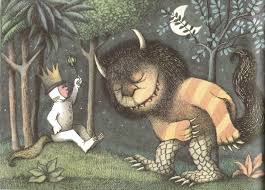|
I was first introduced to Thich Nhat Hanh by my mentor Fr. Harold Anderson, an Episcopal priest and gentle soul. He told me to read his book Living Buddha, Living Christ an outstanding literary work of art that speaks to the legacy these two great teachers have left to society to practice a way to peace. That way, it seems, is through being mindful of the world around you and the world in you. Today, I learned that this great teacher passed away at the age 93 in his homeland of Viet Nam. Eliza Barclay wrote on Vox last September, "Thich Nhat Hanh has done more than perhaps any Buddhist alive today to articulate and disseminate the core Buddhist teachings of mindfulness, kindness, and compassion to a broad global audience." Read her article here.
In Living Buddha, Living Christ he wrote, "The true body of Jesus [which I was taught is the Church] is His teachings. The only way to touch Him is to practice His teaching. The teaching of Jesus is His living body, and this living body of Christ manifests itself whenever and wherever His teaching is practiced." For me, a traditional Protestant Christian, this taught me that it wasn't simply enough to "believe." There was more to this thing called Christianity that was being overlooked by many of my church leaders and teachers. Faith is important. But faith is a practice, a verb not a noun. This simple, yet profound realization made the gospel come alive for me. I mean COME ALIVE. I had read it, I had studied it and even taught it, but I had never really lived it. I have never, as Thich suggests, "Walk as if you are kissing the earth with your feet." Up this point I had never truly practiced seeing people in a way that Jesus would. I was still having trouble meeting people where they were - in their poverty and pain. Up until this point, I was a "my faith saves me and I'm all good" kind of guy. Completely ignoring all that Jesus not only taught but practiced on a daily basis. Thich realized this. And embraced Jesus, not as a Christian or even a Buddhist but as a human being doing what we are all called to do. If one believed this Palestinian Jew was the Christ, the Anointed Messiah, then why wouldn't we do everything exactly as he taught? [That's another blog for another time.] But here's the thing, Jesus' teachings are not far from what the Buddha taught some 500 years before. It's not hard for his teachings to have been passed on, and reached that part of the world over that amount of time. And it's not a stretch for me to also believe that God gave that wisdom to both men. Why wouldn't a God of life use all life to reveal God's self to the world? See what St. Paul had to say about this in Romans. In many christian circles just writing this would get me excommunicated or at least thrown out of the party. And yet, Thich welcomed me to explore these thoughts deeper until I found true meaning of God, and what it meant to dwell in God and have God dwell inside me. There are differences between "us" and "them" for sure. But there are lessons from both that have been passed down throughout the generations that we cannot ignore. And the way to do that is to be in dialogue with one another, learning from each person you meet because we have all been passed wisdom down from the ages before us. And we all must also pass it on ourselves.
This is just one of the ways that this great contemplative monk has shaped my theology and life. He has also inspired some of my favorite authors and friends. He passed on his wisdom to his and my generations. And encouraged and inspired us to do the same. This is exactly what Jesus left us to do. To pass the stability, the peace, the joy, understanding and love to one another. Not just in words, but in our deeds. The way we practice his teachings as if we really believed he meant what he said. If a Buddhist monk can do it, what's stopping us?
0 Comments
Leave a Reply. |
Ian MacdonaldAn ex-copywriter turned punk rock pastor and peacemaker who dedicates his life to making the world a better place for all humanity. "that they all might be one" ~John 17:21“Prius vita quam doctrina.”
~ St. Thomas Aquinas (1225–1274) * “Life is more important than doctrine.”
Archives
June 2024
|
